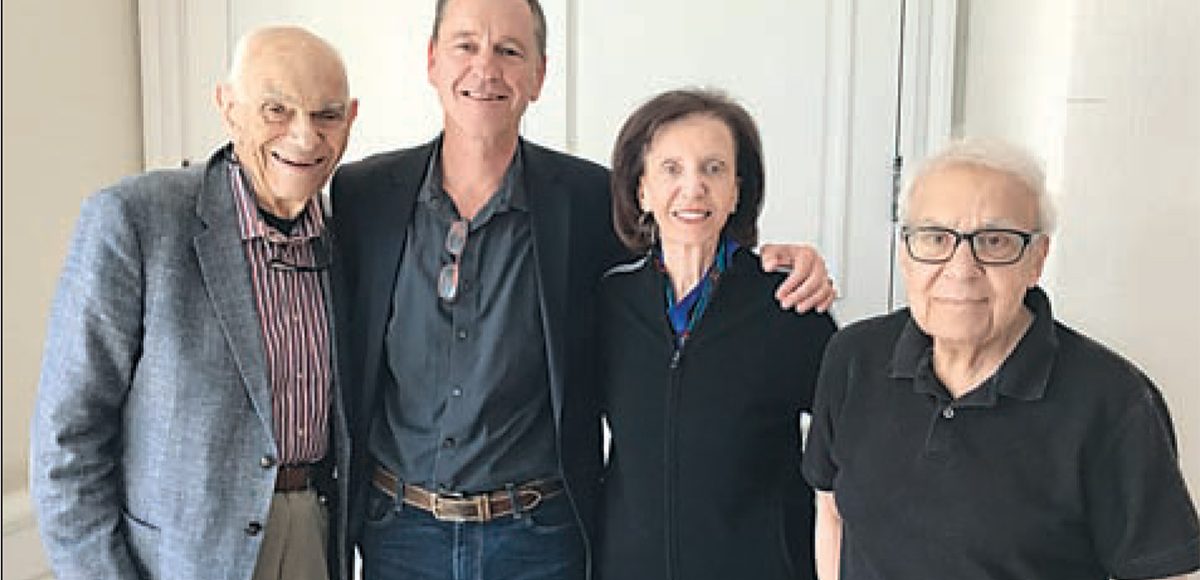With the recent announcement that the 2019 Nobel Prize in Medicine would be awarded jointly to professors William G. Kaelin Jr., Sir Peter J. Ratcliffe and Gregg L. Semenza for their discoveries of how cells sense and adapt to oxygen availability, the total number of Massry Prize recipients that have gone on to win the Nobel Prize will soon be 20 over 40 percent of all winners. The three scientists were last year named 2018 Massry Laureates.
Founded by Beverly Hills residents Meira and Shaul Massry in 1996 to recognize outstanding contributions to the field of biomedical sciences and the advancement of health, this year’s Massry Prize Laureates, Professor Ryszard Kole and Dr. Stanley T. Crooke, will be feted on Saturday, Oct. 26, at a special program and presentation beginning at 9 a.m. at City Hall. The 2019 Massry Laureates, who will share a $200,000 stipend, were instrumental in creating a new class of pharmaceutical agents, known as antisense drugs.
“This field has opened new horizons in the use of genetics in therapy. It really allows treatment of diseases which you couldn’t treat before,” said USC Keck School of Medicine Professor Emeritus Shaul Massry, a pioneer in the field of biomedical sciences who holds 14 honorary degrees in medicine from prestigious institutions around the globe.
By creating a new class of pharmaceutical agents to attack disease, the 2019 Massry Laureates pioneered targeting RNA molecules by creating “antisense” strands to either alter the function of the proteins they encode or eliminate the offending molecules entirely.
“Therapeutically, this may be the most exciting area over the next 10 years,” predicted Massry Prize Committee member Clive Svendsen, who heads up Cedars-Sinai’s Svendsen Laboratory specializing in regenerative medicine. “This technology is a tool to modify the output of any gene.”
Svendsen is one of the six members of the Prize Committee who pared down this year’s eight finalists to Kole and Crooke. Each year after selecting a field that is at the forefront of medical research and finding the leaders in the field, the committee is tasked with determining the prize recipients.
“It’s a new era of therapeutics,” Svendsen said of the antisense therapeutics, which have the potential to treat brain disease, heart disease or any type of cancer by effectively using the technology to target cells.
When the idea was first talked about 40 years ago, the scientific community was skeptical given that RNA molecules were known to be remarkably unstable. However, Kole and Crooke persevered to overcome these issues and drive the field forward.
In diseases such as Duchenne muscular dystrophy there are errors in how specific proteins are made from the RNA. Kole discovered that short segments of new RNA added to a cell could avoid these errors and produce the normal protein. He was able to take these findings from his laboratory and into clinical trials and subsequent approval of a number of drugs by the FDA.
At the same time another pioneer in this growing field, Dr. Crooke, had been working on similar approaches to using antisense oligonucleotides as drugs. Building on Kole’s work and extending it to other diseases, Crooke similarly realized he needed to create a company to move forward to develop “antisense oligonucleotides” as therapeutical drugs to further create a new sector of the pharmaceutical industry. Using the technology, Crooke founded Ionis to develop antisense medicines and has been able to create an entirely new class of therapeutics.
“Drs. Kole and Crooke are both extraordinarily creative scientists and classic entrepreneurs; they are outstanding examples of scientific creativity and ingenuity clearly deserving of the 2019 Massry Foundation Prize,” stated the team responsible for selecting the recipients.
Now in its 23rd year, the upcoming Massry Prize program at City Hall will include welcome speeches by USC Keck School of Medicine Dean Laura Masqueda and UCLA David Geffen School of Medicine Dean Kelsey Martin, in addition to presentations about their work by Kole and Crooke.
Three-time Beverly Hills mayor Vicki Reynolds recalled how she was approached by Dr. Massry during her second term as mayor in the 90s with the prospect of having the awards ceremony take place at Beverly Hills.
“We were delighted to do it,” recalled Reynolds, who along with her husband, Murray Pepper, are on the Massry Prize Honorary Committee. “[Dr. Massry] was looking for prestige from the city and it’s come to be that the city derives prestige from the prize. It was mutually meaningful.”







